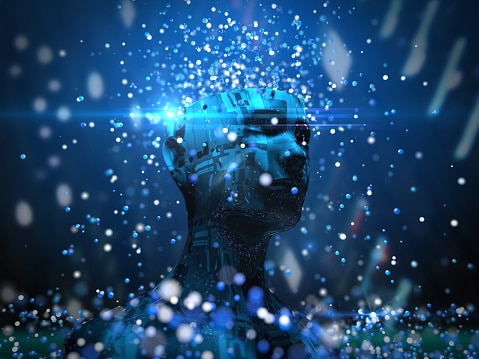Forbes’ new list of promising artificial intelligence companies highlights how the technology is creating real value across industries like transportation, healthcare, HR, insurance and finance.
Naturally, the founders of the honoree companies are excited about the technology’s benefits and, in their roles, spend a lot of time thinking and talking about its strengths and limitations. Here’s what they think people get wrong about artificial intelligence.
Affectiva CEO Rana el Kaliouby says she’s too often encountered the idea that AI is “evil.”
“AI—like any technology in history—is neutral,” she says. “It’s what we do with it that counts, so it’s our responsibility, as an AI ecosystem, to drive it in the right direction.”
Companies need to be aware of how AI could widen bounds of inequality, she adds: “Any AI that is designed to interact with humans—Affectiva’s included—must be evaluated with regards to the ethical and privacy implications of these technologies.”
Sarjoun Skaff, CTO and cofounder of Bossa Nova Robotics, says that the biggest misconception he encounters is that artificial intelligence is actually, well, intelligent.
“The truth is much more mundane,” he says. “AI is a very good pattern-matching tool. To make it work well, though, scientists need to understand the details of how it internally works and not treat it as an ‘intelligent’ black box. At the end of the day, making good use of great pattern matching still belongs to humans.”
Similarly, Aira cofounder Suman Kanuganti says that the public has “over-inflated expectations” for artificial intelligence.
“Garry Kasparov sums it up nicely: ‘We are in the beginning of MS-DOS and people think we are Windows 10,’” Kanuganti says. “AI realistically is still like a 3-year-old child at this stage. When it works, it feels magical. It does some things well, but there’s still a long way to go.”
So, no, we are nowhere close to “artificial general intelligence,” or AGI, where machines are actually as smart as humans.
“We’re still a long way from AI having the general intelligence of even a flea,” says David Gausebeck.
Despite the tendency to overestimate what artificial intelligence can do, the difficulty of building an effective system is often underestimated, some founders say.
“The systems you need to implement and manage machine learning in production are often much more complex than the algorithms themselves,” says Algorithmia CEO Diego Oppenheimer. “You can’t throw models at a complex business problem and expect returned value. You need to build an ecosystem to manage those models and connect their intelligence to your applications.”
Put another way, you can’t just “sprinkle on some artificial intelligence like a magic sauce,” says Feedzai CEO Nuno Sebastiao.
One of the most common tropes that a handful of founders brought up was the idea that artificial intelligence is primarily a job killer.
People.ai founder Oleg Rogynskyy says that AI should be seen as a creator of new opportunities instead of a destroyer of jobs.
“In a nutshell, AI does two things: It automates repetitive low-value-add work for humans (which will indeed take low-complexity jobs away), which we think of as ‘Autopilot,’ and it guides people on how to do their work or other activities better (which makes humans more effective at what they do), which we call ‘Copilot,’” he says. “While Autopilot can take simple, repetitive and boring jobs away, Copilot is absolutely the best way to guide, train and educate humans on how to do new things.”
– By Jillian D’Onfro, Forbes
